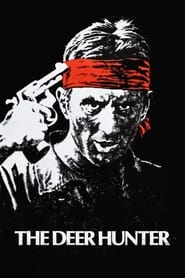The movie was exciting, and it was impressive. It was absorbing, repellent, romantic, touching, brutal, confusing, stirring, annoying, technically sure, structurally shaking, and long. But mostly it was impressive. Visually it was arresting from the startling first images: caldrons of molten steel in blast furnaces prefiguring the napalm to come. The imagery was beautiful and terrible at the same time and slowly, deliberately gave way to a quieter, more somber seduction, as we were drawn in into the fictional Pennsylvania mill town and its steelworkers' lives.[…]
[Later, when Universal where threatening to cut the film, Cimino] knew how the picture played because he had constructed it to play that way. He knew that cutting it would have less effect on the content per se than on the movie's internal rhythms (which made the damage harder to reckon but easier to inflict), making it seem not shorter but longer, because less satisfying, and that this paradox would become clear when it was seen with audiences, even toi poor, benighted Universal and EMI.
— Steven Bach: Final Cut: Art, Money and Ego in the Making of "Heaven's Gate" (1985)

